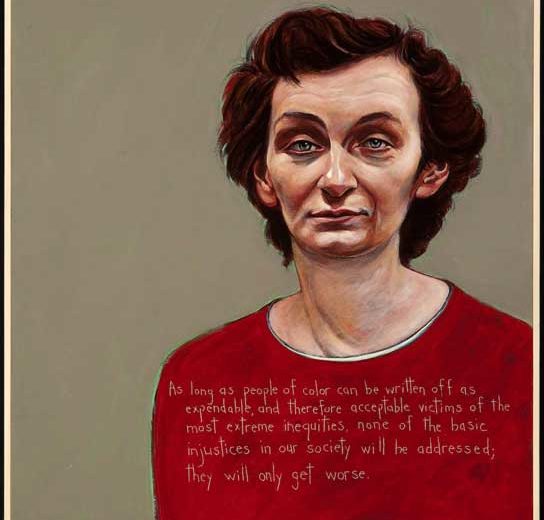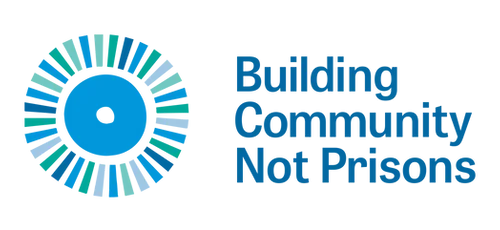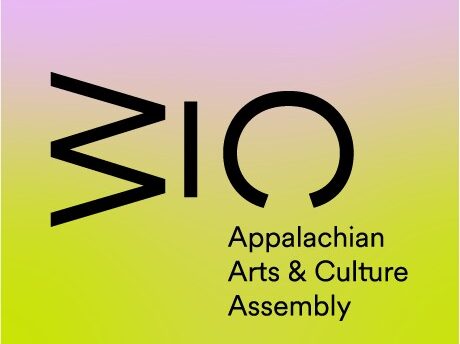
Written by Lyndsay Tarus
PC: Robert Shetterly
The Catalyst Project’s Anne Braden Fellowship changed my life. It’s been one of those mind-blowing, eye-opening, better-with-time experiences that I find hard to put into words… This post will be the first in a series where I and other Braden fellows share back what we have learned from the Anne Braden program and invite conversation from other comrades.
About Anne Braden and the Fellowship
Anne Braden was a white organizer and leader in racial justice movements in Kentucky and the U.S. South. With this program, the Catalyst Project honors Anne’s legacy of dismantling white supremacy and all forms of inequality with an anti-racist, class-based analysis, and community organizing approach. Anne worked to root out racism from the hearts and minds of white people for collective liberation. Part political education, part leadership development, and part personal transformation work, the Anne Braden program is for white organizers working toward anti-racism. It included three intensive 4-day workshops, one-on-one mentorship, hours of deep study including readings, audio and video, research and homework, small group meetings and support, and a grassroots fundraising component.
What We Learned
This year, several organizers from member groups of the Alliance for Appalachia, including Veronica and Ashley with the Center for Coalfield Justice, Lesley and Sara with Kentuckians for the Commonwealth, Olivia with the STAY Project, and myself an Alliance staff member, participated in this transformational program.
I serve as the Economic Transition Coordinator in the Alliance for Appalachia and through this work, I’ve learned so much about how local organizing has rippling effects across a region. I’ve been inspired by community leaders who take initiative, build partnerships and transform their big ideas into real opportunities based on their values, visions, and principles of the community they’re working for and toward. In participating in the Braden Program, I wanted to develop a broader perspective and deeper understanding of how these local efforts fit into a bigger picture, and to answer questions like how do our ideas of a just transition compare to other communities? I needed help developing a vision of the world we’re working towards, not just what we’re trying to dismantle. I came with questions like what do anti-racist systems look like? And how will we know when we’ve achieved collective liberation?
Building on those questions, I wanted to unearth my story, to hone my confidence and commitment to anti-oppression organizing and to gain skills that help me transform as a leader and an ally. My personal goals for the program included self-actualizing and I’m learning that until we understand our place and role in oppressive systems of economics and governance, we cannot fully understand how these systems work.
For this reason, one of our first tasks was to research our family histories to understand the ways our families have perpetuated, assimilated into, and resisted white supremacy. We focused on oppression, survival, resistance, and privilege by exploring questions around where and when our ancestors came to -what is now the United States – and under what circumstances, what kind of work they did, and how it was valued, how they benefited or suffered from slavery and war, and what kinds of organized networks they participated in for survival and resistance. We then used this information to place our own histories into a timeline of the global context of white supremacy.
This exercise and readings similar to those linked below helped me realize that we are history in the making. In the Braden Program, this was a first step in finding common themes across systems of oppression and in defining what those systems are and how they continue to thrive. From here, we defined capitalism and deconstructed class; more on this in our next post. In the meantime, use these resources to explore your own experience and role in the long arc of historical politics:
- Written by various members of Catalyst Project: Historic Development of Whiteness
- 1963 Speech by James Baldwin- transcription, recording
- Family Tree activity from Highlander Center’s Economics and Governance Curriculum
Thanks for reading, let’s keep the conversation going in the comments below. How are your visionary politics grounded in the long arc of history? What are common themes you see across global systems of oppression? of resistance?



Leave a Reply